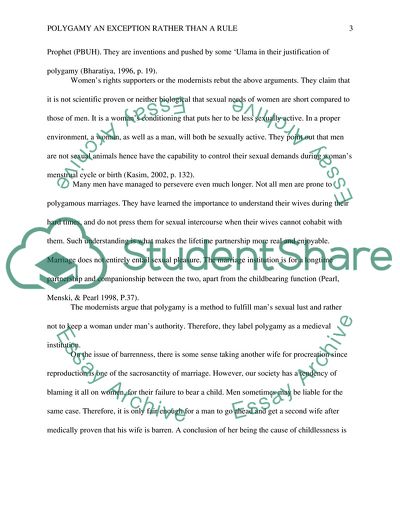Cite this document
(Polygamy in Islamic Law Literature review Example | Topics and Well Written Essays - 1750 words, n.d.)
Polygamy in Islamic Law Literature review Example | Topics and Well Written Essays - 1750 words. https://studentshare.org/religion-and-theology/1870783-polygamy-in-islamic-law
Polygamy in Islamic Law Literature review Example | Topics and Well Written Essays - 1750 words. https://studentshare.org/religion-and-theology/1870783-polygamy-in-islamic-law
(Polygamy in Islamic Law Literature Review Example | Topics and Well Written Essays - 1750 Words)
Polygamy in Islamic Law Literature Review Example | Topics and Well Written Essays - 1750 Words. https://studentshare.org/religion-and-theology/1870783-polygamy-in-islamic-law.
Polygamy in Islamic Law Literature Review Example | Topics and Well Written Essays - 1750 Words. https://studentshare.org/religion-and-theology/1870783-polygamy-in-islamic-law.
“Polygamy in Islamic Law Literature Review Example | Topics and Well Written Essays - 1750 Words”. https://studentshare.org/religion-and-theology/1870783-polygamy-in-islamic-law.


